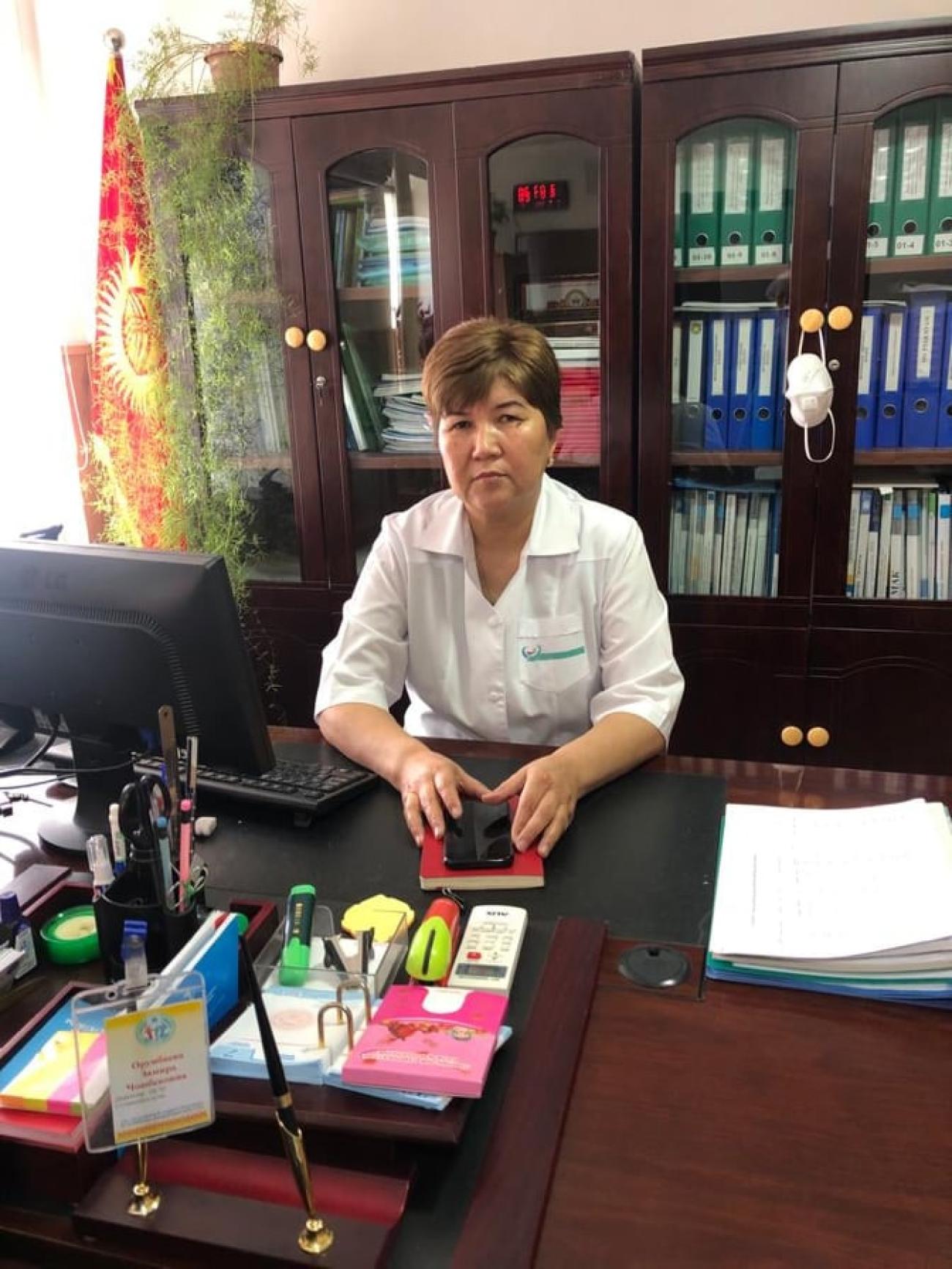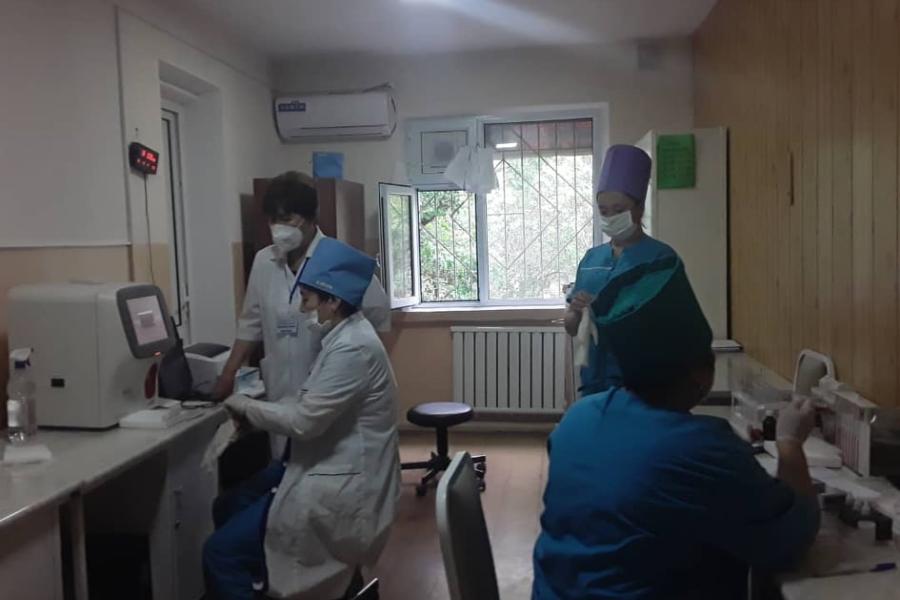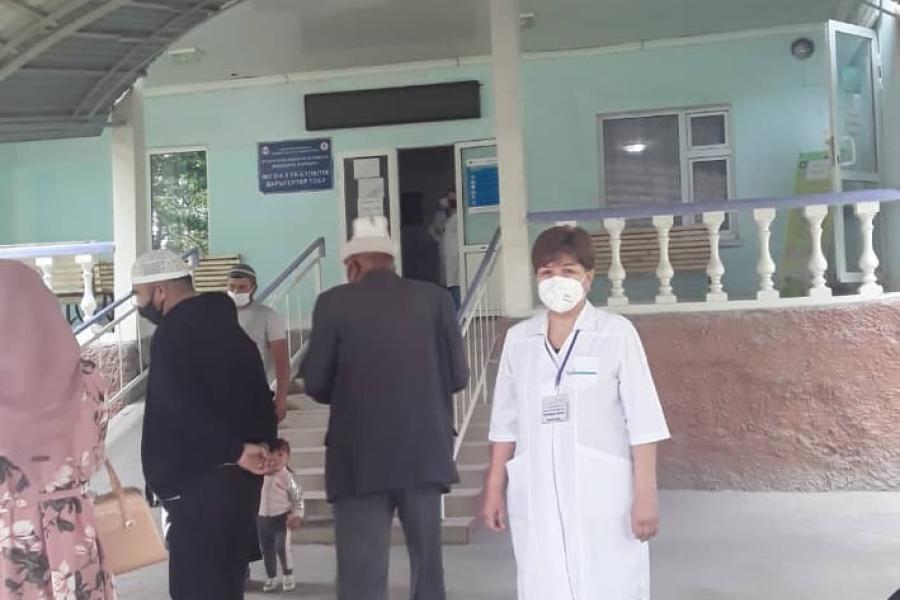The health of patients is the major motivation for the doctor

The Family Medicine Centre (FMC) in Suzak district of the Jalal-Abad province is considered one of the largest in the country.
Every day, 74 medical workers of various specialties come to work receiving patients living in Suzak district and beyond.
Ms. Zamira Orunbayeva has been the head of the Suzak Family Medicine Centre since October 2010.
The early morning of Zamira, like that of any other FMC leader, begins with a daily round of the Center’s territory, visiting all the doctor’s offices and defining the most urgent tasks for the day. According to Zamira, the director of FMC today is a leader who must constantly work as a crisis manager and simultaneously solve a lot of issues, ranging from the lack of staff, complaints and requests of patients to providing medical personnel with the necessary equipment and means of protection.
“Each day I have to make difficult and sometimes tough decisions. Some people like it, some people do not, but it is not easy to be a leader and also a female leader. It is important to be consistent in what you do and make decisions that will benefit the patients and my team.”
It so happened that the Suzak district became the first to face the coronavirus pandemic in the country. Zamira says that in the first weeks she had to work without weekends, holidays and had to sleep in the office:
“Jointly with the ambulance service we met all those who came from other countries, familiarized them with the conditions of home quarantine, talked to relatives and ensured daily medical supervision. In our structure we have 20 family doctor groups and 32 paramedical and obstetrical stations. Between March 4 and May 02, 2020, 378 people arrived from abroad. During the epidemiological investigation 5278 contact persons were identified. All of them were under our medical supervision. All the doctors were under enormous strain, we had to remove narrow specialists from their daily work and send them to receive calls and examine contact persons. Patients were unable to visit the FMC for 2 months, therefore health workers delivered medicines and preparations to all people who needed them such as people with TB, people living with HIV, people with diabetes”.

Zamira says that the majority of doctors have chosen their profession since childhood. People believe in doctors, believe that a man in a white gown will help them and they will recover soon, often it is the main motivation for her colleagues. However, they face a lot of difficulties in their work, doctors must constantly improve their capacity to fight new viruses. Sometimes the mistrust of patient limits the success of treatment - this was clearly demonstrated at the start of the pandemic. She hopes that the lessons of the pandemic will lead to greater attention of the government to health issues as well as higher salaries for the health workers. We already experience a shortage of doctors and the pandemic showed that doctors are like soldiers and in case of need they will always be on the front line.
The Suzak district FMC is one of the pilot centers where a multidisciplinary approach is applied and a system of decentralization of HIV and AIDS services is practiced, where a person living with HIV can receive all services at the level of primary healthcare. Zamira was the initiator of the multi-disciplinary teams on the basis of the FMC and even during the strict quarantine she organized the team in a way that all people living with HIV who are registered at the center received and receive the necessary number of medicines.
The United UN program on HIV / AIDS assists medical workers in 10 pilot FMCs, providing technical and financial support to multi-disciplinary teams within the frame of the Russian Program of Technical Assistance to Eastern Europe and Central Asia to combat HIV/AIDS and other infectious diseases. The project is implemented by the “Araket Plus” Public Foundation.


